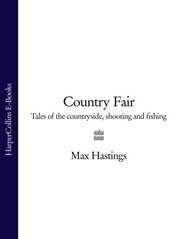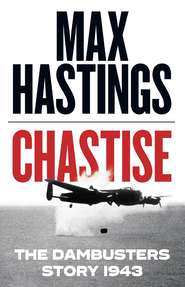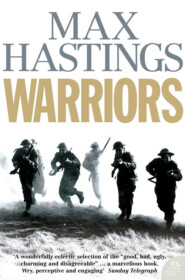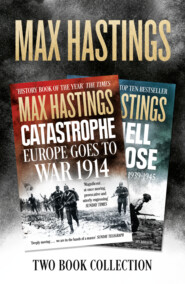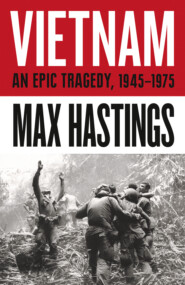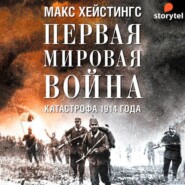По всем вопросам обращайтесь на: info@litportal.ru
(©) 2003-2025.
✖
Did You Really Shoot the Television?: A Family Fable
Настройки чтения
Размер шрифта
Высота строк
Поля
‘But you can do anything with five pounds, Tom.’
‘No you can’t, missie. It sounds a lot to you, but if you have to pay for your own lodgings and your own fares and your own food and your own amusements, it don’t last more than a fortnight. And then you’ve got nothing to show for it.’
Herm was full of fascinations for children. There were snakes, which the boys caught and sometimes tried to take home. They once caused consternation in the Customs shed at Southampton when the reptiles staged a mass escape. For some reason, Herm’s princely owner had elected to keep kangaroos, which roamed wild, and seemed untroubled by having stones thrown at them. No ordinary visitors were allowed on the island, so that it was a paradise for digging caves in the sands, playing pirates, hunting for treasure. ‘We were so happy that we couldn’t quarrel very much,’ wrote Basil. They also dreaded the prospect that a row might result in one of the Pater’s show trials, which would waste precious holiday time.
Each Sunday, the family boarded the proprietor’s glittering steam yacht to attend Mass on Guernsey. At sea, the boys watched Tom Duffy working the engine. If Prince Blücher himself was aboard, he passed the trip shooting seagulls. The children marvelled at their father’s almost inextinguishable holiday good temper. Edward seemed happier on Herm than at home, delighting in his children, perhaps because the Tribe was easier to manage amid the wide-open spaces. To Basil, each one of those September days in the Channel Isles was an idyll.
Back in London, during Victorian winters when there were annual freezes, the Pater taught his brood to skate on the Ladies’ Pond in Battersea Park. They never minded skating days, because lessons at home were cancelled. Indoors, most of the boys’ games involved model soldiers and bangs. In those days, gunpowder could be bought loose across the counter, like tea or sugar. It was regarded, even by Edward, as a perfectly normal playroom accessory. One day Lewis and Basil made a bomb by wrapping sixpence worth of black powder in an oily rag, placing it inside a tin and wooden fort, then laying a powder trail to the door of the nursery.
The Pater was summoned to join the children and witness the climactic moment. Blinds were drawn to make the room dark, then the fuse was lit. They watched enthralled as the flame raced across a desert made of silver sand and entered the fort, defended by broken lead soldiers, their uniforms glinting in the firelight. When the trail caught the oily rag, for an instant the fort became brilliantly lit. Then there was a thunderous crash as it blew apart. The watchers coughed and spluttered in a nursery full of smoke. The Mater ran upstairs and threw a fit when she observed a deep burn on the floorboards. She scolded Edward for allowing it all, as well she might. He, however, chuckled and chuckled, and was still laughing as he went downstairs. In his own life he had allowed himself so small a quotient of fun, of recklessness, of self-indulgence. A moment such as that one released all manner of unexpected emotions. At heart, the poor man may have yearned to unleash a wilder spirit than ever he allowed. In any event, the explosion provoked no recriminations for Lewis and Basil. Heredity must count for something, because an enthusiasm for bangs has been a persistent attribute of the Hastings family ever since.
The Tribe reserved its utmost scorn for visitors, who were received with almost unfailing discourtesy. A woman before whom they were paraded in the drawing room said to Lewis: ‘Well, you are a big boy! Do you know that I nursed you when you were a tiny baby in arms? You must give me a kiss.’ Lewis glared blankly back and demanded: ‘Are you going to give us any money?’ This caused her to become very red in the face and leave quickly. The children categorised visitors who offered no tips as ‘the paupers’. Young Claude cannot have been best pleased when old grandmother Mary Hastings died in 1885, and bequeathed him only her red rosary blessed by the Pope.
Children often recoil from the banality of grown-ups’ remarks. My grandfather winced when a woman visitor gushed: ‘And is this really Basil?’ The Mater, who had thrashed her offspring that very morning, assented with an indulgent smile, which increased her son’s disgust.
‘He is a very big boy – and he looks so healthy.’
‘Oh yes, but just a little bit troublesome at times, aren’t you, Basil?’ said the Mater, beaming.
‘Oh no, I’m sure not!’ said the visitor, lifting her veil as well as her glass of sherry, the better to inspect the youthful prodigy.
‘I am afraid so. He had to have a little whipping this morning.’
‘Well, there now, but he’s going to be a good boy always now, isn’t he?’
If these performances were repugnant enough, the children’s worst ordeals took place when parties were held at Trinity Square. Never much liking outsiders anyway, their resentment intensified when they were ordered to confine themselves to bread and butter, so that visitors could scoff the cakes and éclairs. After tea, the Tribe was required to sing for the assembled company, to their mother’s piano accompaniment. The worst of the ditties they performed was entitled ‘O Tea, O Tea, O Fragrant Tea’. Once, old General Hastings, Edward’s uncle who had spent most of his life in the US Army, arrived on a visit. He was very old and very deaf, supposedly in consequence of cannon-fire, and his wife shouted at him through a speaking trumpet. The children quite liked his stories of the Mexican expedition and the US Civil War, ‘but he was horribly ignorant about real history like Horatius and Castor & Pollux’. Their best visitor ever was a girl cousin, whose father gave her a sovereign with which to amuse herself and the Tribe. They were able to go to the Zoo and back in cabs, as well as gorge themselves on ten shillings’ worth of ices, mince pies, Banbury cakes, ginger beer, meringues, angel cake, chocolates and tangerines. Basil said: ‘It was the best feed we ever had.’
But that huge family was always happiest in its own company. Both Lewis and Basil became accomplished story-tellers, regaling the younger ones with tales of slave ships, pirates, treasure, ghosts. There were more than enough of them to perform plays and tableaux in the big kitchen, which had lots of doors. The nurse was conscripted to print a programme on Edward’s typewriter. ‘I don’t think the pater liked anything so much on earth as these plays,’ wrote Basil. ‘He was always frightfully solemn at the solemn parts, and roared like mad if there was anything comic. At the end he clapped and clapped till he was tired. If you wanted to cheer him up you only had to tell him that there was to be a play the next Saturday.’
Edward carried to extremes a refusal to display signs of alarm, less still panic. Once, two of the younger boys hired a steam engine from Tuppence-the-Most. After it had been running for some time, delighting the Tribe, their parents went to bed. Lewis and Basil set about discovering how fast the engine could be driven. They poured fuel into its furnace, even breaking up their siblings’ toy theatre to feed the flames. There was a thunderous explosion, smoke filled the house. The nurse woke, and hammered in terror at the Pater’s door. ‘Come out sir, come out!’ she cried. ‘The house is on fire!’ The Pater’s response caused the children to howl with laughter: ‘All in good time, Nurse, all in good time. Wait till I find the coat I usually wear on these occasions.’ When Edward emerged, however, he went out into the street and rang the fire alarm, causing the brigade to appear, its horse-drawn engines galloping up the street. The children were ecstatic, the Mater furious. She pointed out that the fire could have been extinguished with a few buckets of water. She was neither the first nor the last Hastings wife invited to endure much at the hands of her husband and offspring.
At ten, Lewis and Basil were sent to Hodder, Stonyhurst’s prep school. They proved successful schoolboys, both in the classrooms and on the sports field, winning prizes, Basil wrote later, without extravagant effort. Edward’s letters to his sons display the same relentlessly didactic spirit as do those of his own father Hugh to himself, a generation earlier. Because the boys had never known any other kind of father, and lived in an age and a family powerfully influenced by religion, they seem to have been untroubled by screeds which were, more often than not, exam papers.
‘My darling son Basil,’ Edward wrote from Herm on 10 October 1892,
I have your letter of 6 October. I notice you by mistake left the name of the archbishop blank. Please (1) supply the blank. Mamma has received the manual of Prayers for Youth, and I have got the list of books, for which I thank you. (2) please send the timetable. Please (3) answer question 34 more fully. I have told Gladys you thank her for her letter. (4) find out the derivation of the word ‘blandyke’. (5) what does ‘Night Studies’ in the Stonyhurst Calendar mean? (6) have you got Ethel’s umbrella? (7) have they any rules at Hodder, and can you send me a copy of them.
There followed an extract from Gladys’s journal of their Channel Islands holiday, then further bullet points, culminating with:
(17) I regret to hear of the drowning of the Jesuit you mention…By the bye – don’t call us your parents, but ‘my dear pater and mater’. It is a point of the utmost significance that when you leave Stonyhurst you should enter the world well apprised of its dangers and infinitely on your guard against bad company and the love of vanities and pleasures. You cannot fortify yourself too much against these evils. You must bring along with you all your religion. I wish you to pray to God to know your vocation.
The barrage of questions was punctuated with fragments of whimsy: ‘Have you asked for Lumley’s Select Plays Of Shakespeare? – which you lost. Responde mihi. Have you found Smith’s Latin Grammar?, respondez s’il vous plaît. I thank you for the programme of the concert of the 1st of November 1892 which was not, as you allege, a Sunday, but a Tuesday – Please apologise.’
Soon after Basil was promoted from Hodder to the main school at Stonyhurst, on 15 February 1893, his father demanded:
Did you cry when you left Hodder?
Do you suck your thumb still?
Do you feel at home at Stonyhurst?
Do you like any of the boys?
Do the boys kick or ill-treat you?
Please answer all questions.
And a week later:
We were sorry to hear that you were spending your holidays in the Infirmary. Did you offer up the sickness to God ‘all for thee, Oh my God – To do thy will, o God’. If you did not – you missed a grand opportunity of earning merit in the sight of God, for this sickness was a great disappointment to you – entailing as it did the loss of 15 days skating. Did you get any skating at all before you were taken ill? The 3rd term’s Report has come. You have attained only 13 marks in Religious Doctrine as against a possible 75 of marks attainable!!!
Edward’s obsession with recording trivia amuses his descendants, but suggests eccentricity of heroic proportions. In great-grandfather, pedantry tipped over into dottiness.
Basil’s Stonyhurst diary was as banal as most schoolboy records, as shown by this entry in 1894: ‘84 more days…Retreat began today. Association. I played right-wing and got two goals, 17 marks for my Greek theme. I have saved 9d. Xmas presents: Lewis got 2 pocket knives, a top hat, a purse; I got a pack of Snap cards, 2 coloured tops; sweets; a steerable balloon; parlour cricket; an artificial nose.’ More interesting was his catalogue of books read. First, there were those from the Spiritual Library: St Paul of the Cross, St Elizabeth of Hungary, The Little Flowers of St Francis. Then came works that he read for pleasure. He listed seventy-six titles, and many were exactly those tales of adventure which his own son, and later I, his grandson, in due course learned to love. G.A. Henty and Walter Scott figured prominently among favourite authors. Basil mentioned with special enthusiasm Bonnie Prince Charlie, Tales of Daring and Peril, The Talisman, St George for England, In the Dashing Days of Old, A Cornet of Horse, Stirring Stories by Land and Sea, Cutlass & Cudgel. A passion for books, and for historical romance, has persisted in the family. To give Edward his due, he did not allow his preoccupation with religion to deny the children fun.
More and more of his father’s letters to Basil included lines of congratulation on prizes won, runs and goals scored. But Edward could never abandon the habit of admonition, as in April 1894: ‘Your poem on Stonyhurst is disfigured by things attractive to the senses being given more prominence than things in which the mind plays a part.’ Nine months later, in January 1895, Edward was quoting Samuel Butler: ‘Nothing is more dangerous and nice and more difficult than for a man to speak much of himself without discovering a complacency in himself…and without discovering symptoms of secret self-love and pride.’ On 22 March, he advised Basil: ‘In your essay on the capture of Gibraltar you might bring in these saints as follows: “Not only did the capture of Gibraltar lead to the establishment of the Moorish dominion in Spain, but indirectly it may be said to have led to numberless martyrs sealing their fidelity with their blood. Had not Gibraltar been captured by the Moors it may be doubted whether saints like ss Nunilo and Alodia would have had the opportunity of winning their crowns.”’
As Lewis and Basil grew older, money matters intruded with increasing frequency into their father’s postal injunctions to them, as in this succinct note of 12 October 1896: ‘Dear Basil, please return enclosed bills with your observations. Don’t have any more neckties. Pater tuus S. Edward Hastings.’ Immense pains were taken to economise on their journeys to and from school. As an end of term approached, Edward dispatched a banknote to Basil with these lines: ‘3rd class railway ticket Whalley to S. Pancras 17-6; margin for contingencies 2-6. £1 supplied. Please give me a written account of how you spend it, and hand back to me the balance. Lewis omitted to write and acknowledge receipt of the £1.10s. This was a solecism on his part.’
Shillings mattered to the Hastingses.
TWO Lewis and Basil (#ulink_be4aaada-b47c-5f57-a3ad-0a41f7f796e9)
In 1898 Edward’s eldest son Lewis, my great-uncle, was in his last year at Stonyhurst when a seismic shock fell upon him and the family. He was accused by the Jesuits of a homosexual relationship, and sacked. Lewis – big, bold, passionate Lewis – emphatically denied wrongdoing. His father, however, insisted that the Jesuits could not be mistaken. Edward took the part of the school against his eldest son, prompting a breach between them that was never healed. Here was the most unsympathetic aspect of the Pater’s religious fervour – a belief that Mother Church was incapable of error.
Lewis responded in a manner worthy of one of G.A. Henty’s wronged young men, of whom he had read so many tales. Always attracted by the notion of wild places, he had devoured the writings of the great African hunters, Selous and Gordon-Cumming. Now, shaking the dust of England from his feet, he ran away to South Africa, working his passage before the mast on a sailing ship, with all his worldly possessions crammed into an orange box. On landing at Cape Town in the midst of the Boer War, he joined a group of young professional hunters who eked a living supplying meat to the mining community. Later, still conforming to a storyline stolen from fiction, he served for a couple of years in the Cape Mounted Police. In its ranks he found himself perfectly at home among other runaways, adventurers and remittance men. He fell in love with Africa, and spent the happiest years of his life there.
There is no record of the row about Lewis, but it must have inflicted a deep trauma on such a family as the Hastingses. Basil’s last years at Stonyhurst were clouded by the memory of his elder brother’s disgrace, whatever his own academic successes. After leaving the school he briefly enrolled at King’s College, London, but quit almost certainly because there was insufficient money to fund him. For the third time in three generations, the education of a young Hastings was cut short. In 1902 he became a clerk in the War Office at a salary of £75 a year. There he remained for the next eight years, though his energies and ambitions became increasingly focused upon freelance journalism.
Only a few months after Basil started work, the family suffered a new blow. Edward’s health was never good. In April 1896 he had visited a specialist, Sir Dyce Duckworth, to discuss his persistent cough. He recorded afterwards that Sir Dyce ‘noticed certain blood vessels below the breast and said I was a hot-tempered man but the temper was soon over. Advised me to discontinue shaving – go for my holiday to a district without trees like Tunbridge Wells or Malvern; eat fat bacon – avoid catching cold; open window of bedroom at night – said I would live 90 years more.’ This diagnosis emphasises the quackery which prevailed a century ago, among even supposedly distinguished medical men.
In September 1903, at the age of fifty-three, Edward suffered a heart attack, collapsed and died while bathing at Shanklin, Isle of Wight. Only a few weeks later his eldest child Ethel, just twenty-four, died of consumption – tuberculosis, then still an incurable blight upon mankind. Lying in a Bournemouth nursing home with her mother at her bedside, she said feebly, ‘I am very sorry for you, Mamma…Oh, Mamma, I’m dying.’ Lizzie Hastings said, ‘Never mind, darling, dear Jesus will take care of you.’ The girl said, ‘Oh yes, I will be with Jesus tonight.’ Her mother asked Ethel to give her love to Edward, then the girl was gone. Lizzie wrote to Lewis in Natal: ‘It would be selfish to wish her back, God’s will be done. I’m sure she will pray for us all very much in her Heavenly Home. Father Luck said he was sure she had gone straight to Heaven. She had a lovely hearse and two mourning coaches.’ Lewis arranged his own Mass for his sister at Kimberley’s Catholic church.
I have no idea how the family coped financially after Edward died. There was probably some life insurance, because people such as the Pater took pains over such things. Somehow, the younger children’s education was completed. Fortunately or otherwise, when the First World War came four of Edward’s sons proved eligible for commissions, in an age when to become an officer it was necessary to ‘pass for a gentleman’. One of the younger boys later attracted public attention of the most unwelcome kind, being tried at Winchester assizes, convicted and imprisoned on charges of homosexual behaviour. But that scandal lay in the future. In the Edwardian years, Edward’s children had neither fame nor notoriety.
Their circumstances remained very modest. Almost all set up London homes south of the river. They remained inhabitants of the world of Mr Pooter, albeit a literate corner of it. A typical entry in the Catholic Herald for May 1904 reports: ‘A successful concert was given on Thursday evening in the aid of the mission, at Peckham Public Hall, under the direction of Claude H. Hastings. The vocal talent was represented by the Rev. W. Alton, Miss Beryl Hastings, Miss Muriel Hastings and Mr A.J. Hastings. The following gentlemen acted as stewards: Messrs. J.D., W.D., and J.A. Newton, Master E.J. Hastings.’ The Church still loomed large in the family’s existence – their aunt Emily, Edward’s sister, presided as Mother Superior at a convent in Roehampton until her death in 1920. Basil, who lived in Denmark Hill, became a pillar of local Catholic charities, notably the St Vincent de Paul Society, for which he organised and acted in local theatricals and concerts. The South London Press reported in March 1906: ‘Few Catholic laymen are better known in South London than Mr B. Macdonald Hastings…because of the work which he has done for the Church in Southwark, for the poor and destitute. Year after year he has organised an entertainment for the benefit of the poor at St George’s Cathedral mission.’
A jovial, enthusiastic, eagerly sociable man, Basil contributed with increasing regularity to newspapers and magazines. He published light verse, much of it about cricket, together with snippets of wit in gossip columns such as: ‘ “Kiss and never tell” is a poor adage for the billiard table. It is just the kissing that does tell’…‘The consistent borrower has the immense satisfaction of knowing that when he dies he will have finished ahead of the world’…‘A clean straw hat in May is an infallible sign of solvency.’ This sort of thing may not make a modern audience roll in the aisles, but a century ago it played well with readers of the Bystander, London Opinion, the Star and suchlike. Basil yearned to escape from his servitude at the War Office. As the first decade of the century advanced, he acquired a modest journalistic reputation.
In 1907 he started to ‘go steady’ with the girl who became his wife, the love of his life. Billie – her full name was Wilhelmina Creusen White – was pretty, gentle, and Catholic. She lived with her parents in Peckham. Later, when some members of the family developed social pretensions, they treated Billie with condescension, complaining that she was dull, unlettered and ‘common’. This was unjust. A woman full of kindness and good nature who had much to suffer, she proved a devoted wife in good times and bad. And the Hastingses of Trinity Square, Borough, were scarcely pillars of Debrett’s.
Basil began a correspondence with Billie on 19 January 1907, dispatching the first of many passionate letters which, inter alia, reveal a fascination with her underclothes: ‘Dear Little Wilhelmina with the very long name…I am going to bed to dream of your tantalising little feet, your brown stockings, your blue garters, your pink knees and lovely foaming petticoats and things. I send you heaps of kisses for all of them.’
On 6 August 1908, he wrote her his last letter as a bachelor, on War Office crested paper, anticipating the joys of married bliss the following week: ‘I am going to kiss you in an entirely different way next Monday night, and somewhere you never dreamt of…’
In less fanciful vein, the day after their marriage in Peckham, Billie’s mother wrote to her daughter, describing what happened at the wedding party after the bride and groom went away. Mrs White’s letter conveys a nice sense of the genteel society in which they lived, and of its simple pleasures:
The Pines, Lyndhurst Road, Peckham S.E.







